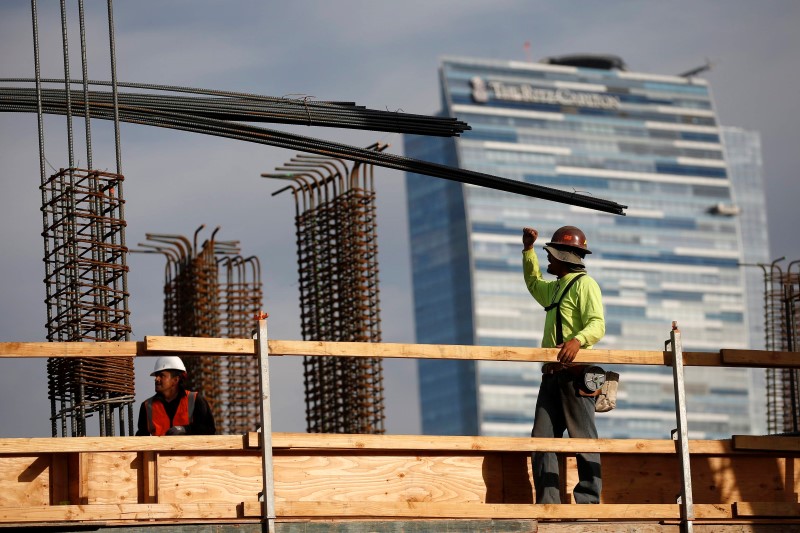Investing.com - U.K. construction sector activity in December handily beat forecasts as new order growth hit an 11-month high, but cost pressures remained elevated, industry data showed on Wednesday.
In a report, market research firm Markit and the Chartered Institute of Purchasing & Supply (CIPS) said that their U.K. construction purchasing managers' index rose to a seasonally adjusted 54.2 last month from November’s reading of 52.8.
Economists had expected the index to remain steady at 52.8 in December.
On the index, a reading above 50.0 indicates expansion, below indicates contraction.
Markit highlighted the robust and accelerated upturn in new work as construction output increased at the fastest pace since March.
The market research firm also noted that price pressure continued with the input cost inflation at the highest level since April.
“December’s survey data confirmed a solid rebound in UK construction output during the final quarter of 2016,” Markit senior economist Tim Moore commented in the report.
“All three main areas of construction activity have started to recover from last summer’s soft patch, but in each case growth remains much weaker than the cyclical peaks seen in 2014,” he added.
Moore pointed out the sustained acceleration in input cost inflation at its strongest since 2011 as the “main negative development in December”.
“UK construction companies noted that the weaker sterling exchange rate had resulted in higher costs for a wide range of imported materials, while some also reported that forward purchasing of inputs had led to depleted stocks among suppliers,” he explained.
Immediately following the report, that was published simultaneously with November mortgage approvals, net lending to individuals, BoE consumer credit and the M4 money supply, GBP/USD was unchanged at 1.2275, EUR/GBP was at 0.8507 from 0.8506 earlier, while GBP/JPY traded at 144.35 compared to 144.37 previously.
Meanwhile, European stock markets were showing little movement trading slightly lower. London’s FTSE 100 dipped 0.08%, the Euro Stoxx 50 slipped 0.05%, France's CAC 40 edged down 0.08%, while Germany's DAX lost 0.20%.
